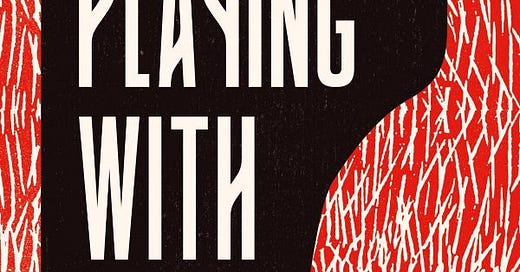Childlike Wisdom: Soviet Pianist Maria Yudina Converses With Greatness
Childlike Wisdom
Soviet Pianist Maria Yudina Converses With Greatness
“Cats Are Indescribably Wonderful, Shostakovich’s Fugues Less So”
Playing with Fire: The Story of Maria Yudina, Pianist in Stalin’s Russia, by Elizabeth Wilson, Yale University Press, 352pp, Los Angeles Review of Books, August 4, 2022
listen to audio narration here (13 mins)
DMITRI SHOSTAKOVICH LIKED to tell a story about the legendary pianist Maria Yudina and her riveting 1953 radio broadcast of Mozart’s Piano Concerto in A Major, K. 488. Apparently, the music wafted into Joseph Stalin’s quarters, and, smitten, he requested a tape of her performance be pressed onto shellac and delivered to him by morning. He never woke up to hear it, though, since he suffered his fatal heart attack later that night. The story — too good for reality, perfect as myth — has lingered as a testament to Yudina’s artistry; Armando Iannucci even opens his buckled farce The Death of Stalin (2017) with a dramatization of the scene. In Playing with Fire, Elizabeth Wilson closes the door on the tale as history in her first appendix.
What’s beyond mythic is how Yudina plays Mozart’s disconsolate slow movement. This adagio (in F-sharp minor), made more poignant by the enchantments of its major-mode bookends, has a delicate instability that stays with you, and Yudina’s relatively slow tempo doesn’t lag so much as echo some ancient internal grief. Her pianism has uncanny transparency, as though her fingers channel some higher realm of expression.
Maria Yudina, Mozart Concerto in A Major K488, slow movement: Adagio
That such Yudina stories even circulated tells us a lot about how prized classical music remained in Soviet Russia long after the Bolsheviks mowed down the aristocracy. As Stalin’s psychosis grew, Communist Party doctrine kept moving the goalposts as to where “acceptable” art lay and where “degenerate” art began when his purges commenced in the early 1930s. Stylistic traits like “formalism” became abject sins, only to be recast as virtues. Composers, painters, and performers maneuvered through minefields while cultivating underground networks.
Maria Yudina was one of the lucky ones never to have been imprisoned, but her life reads like a promise robbed. She was born in 1899, the fourth of five children, in the largely agnostic Jewish town of Nevel, a small city in the Pale of Settlement (near today’s Belarus, east of Lithuania). Her early teachers included Theodor Leschetizky in St. Petersburg (who also taught Artur Schnabel, Mieczysław Horszowski, and Ignaz Friedman). She followed her next teacher, Felix Blumenfeld, to Kiev, and then to Moscow, where she joined fervid intellectual circles of musicians, philosophers, novelists, historians, political theorists, and every stripe of eccentric...
—continue reading at the LA Review of Books
more on Maria Yudina
Playing With Fire, Elizabeth Wilson. Yale, 2022. [see Bookshop]
Custom Playlist [Apple music]
Maria Yudina discography [Discogs.com]
More Yudina on Youtube
clips
A Rock Critic's Guide to Classical Music
Booked on Rock podcast: history, authorship, and the deluge
coming soon
Lenny Kaye on Lightning Strikes
Jason Gross, editor of Perfect Sound Forever
newsletters
Music Journalism Insider
More newsletters
riley rock report
twitter feed: @timrileyauthor
Buzzsprout: audio segments
RSS: https://feeds.buzzsprout.com/1923124.rss





